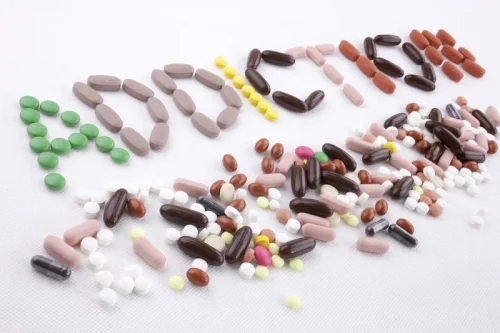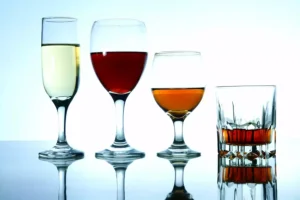How to create a relapse prevention plan
‘ – its causes, effects, and the vital role of nutrition professionals. Discover five ways to protect your child from drugs, focusing on prevention and effective communication strategies. Discover strategies on how to stop eating addiction and unlock freedom with expert insights and treatment options. Discover what an outpatient treatment program is and learn how it offers flexibility and real-life recovery benefits.
Some of the immediate changes you will need to make will be obvious—like not hanging around the people that you used with or obtained drugs from. After all, you can’t hang around your drug dealer or old drinking buddies and expect to remain sober for very long. Clean and sober since 2009, Michael is passionate about helping others discover their authentic self and live a life of true freedom and purpose.
Understanding the Impact of Addiction on Families
It’s important to start with small, manageable goals and gradually increase their complexity. This approach builds confidence and reinforces commitment to recovery. Discover how exposure therapy treatment can A Guide To Sober House Rules: What You Need To Know revolutionize opiate addiction recovery.
Proven Cognitive Therapy Techniques
- They reinforce accountability and connect individuals with peers who understand their struggles, enriching their sober support network.
- The anxiety-sobriety paradox, that unsettling wave of anxiousness after quitting, is a temporary guest.
- Sober Speak aims to be a beacon of hope for alcoholics, addicts, their families, and friends.
- However, they do dance together in a way that feels, well, counterintuitive.
- Discover tips for staying sober on Thanksgiving, from mindful practices to navigating social gatherings.
A balanced diet and adequate sleep establish a foundation for better mental health as well. Emotional awareness is vital for recognizing the signs of a relapse in its early stages. Keeping a journal to track emotional responses and cravings can provide insights into triggers.
Developing new hobbies or rekindling old interests can also fill the void left by substance use. This might involve joining clubs, taking classes, or volunteering in the community. Research shows that active participation in support groups increases the likelihood of long-term sobriety. Attendees benefit from shared wisdom and feel less alone in their struggles. Discover alarming adult addiction statistics & facts in the US; from opioids to alcohol, the reality bites. Explore how Powerball can lead to gambling addiction, affecting finances and relationships for https://thecinnamonhollow.com/a-guide-to-sober-house-rules-what-you-need-to-know/ many.
Introspection in Recovery
Use the worksheets and templates provided to create a solid foundation for your relapse prevention plan. Reach out to your support network and professional resources whenever needed.If you or a loved one is struggling with addiction, the Boca Recovery Center is here to help. Our team of experienced professionals is dedicated to providing comprehensive care tailored to your unique needs. Contact us today to learn more about our programs and how we can support you in achieving lasting sobriety. Identifying and understanding your relapse triggers and cravings is a key initial step in creating an effective relapse prevention plan.
How to Manage Emotions Without Turning to Substances
Supporting emotional health through talk therapy allows individuals to process underlying issues, enhancing resilience. Accountability acts as a motivating factor in maintaining sobriety. When individuals feel responsible to their support network or recovery groups, they are less likely to engage in behaviors that may jeopardize their progress. This shared accountability can create a conducive environment where everyone supports one another’s recovery journeys. To effectively manage your triggers and cravings, it’s essential to assess your personal triggers and stressors.
Medication Assisted Treatments: Cure or Crutch?
Similarly, peers from support groups, such as Alcoholics Anonymous or Narcotics Anonymous, share their personal experiences and coping strategies. This shared understanding can often empower individuals to confront their struggles more effectively. Lastly, ensure to actively implement your plan and regularly reassess it to guarantee it meets your evolving needs throughout your recovery journey. This ongoing evaluation helps reinforce your commitment to a sober lifestyle.
Setting Boundaries in Relationships
By recognizing what prompts the urge to use substances, you can develop strategies to manage these situations and maintain your sobriety. Building a personal recovery plan and participating in aftercare programs play a vital role in fostering long-term sobriety. Achieving long-term sobriety is not a destination but a continuous commitment to personal growth and resilience.
- Anxiety and sobriety – two things that don’t seem like natural companions, but that’s only at first, naive sight.
- It helps individuals identify potential triggers and develop tailored strategies to manage them.
- These structured strategies help identify triggers, develop coping mechanisms, and establish support systems to maintain sobriety.
- Discover how sober living communities in Kansas transform lives and support addiction recovery journeys.
- Adaptability can significantly improve long-term outcomes, fostering resilience against potential setbacks.
Relapse is often a part of recovery, serving as a crucial learning experience rather than a failure. Understanding and identifying personal triggers can help individuals better prepare for future challenges. By approaching relapse with a mindset geared towards growth, individuals can refine their strategies, ultimately enhancing their recovery journey. Community support is a cornerstone for successful recovery from addiction. It alleviates feelings of isolation and loneliness often experienced by individuals in recovery. When people engage in community activities or support groups, they not only connect with others who share similar experiences but also foster a sense of belonging.


















